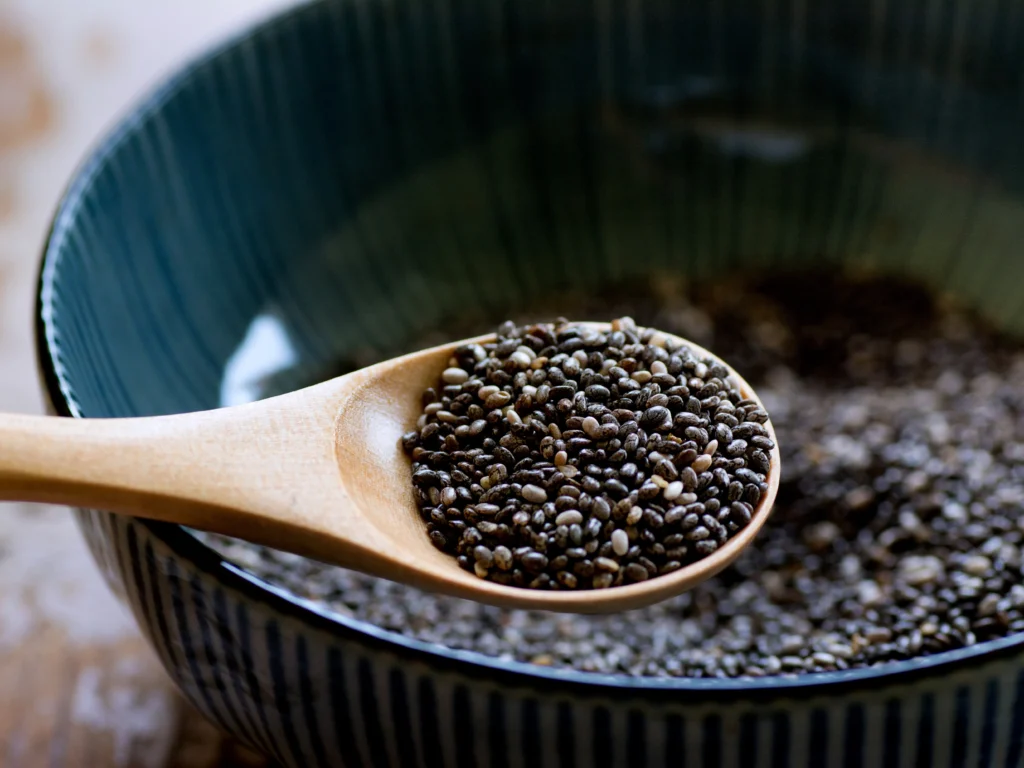Omega-3 fatty acids are essential nutrients that play a crucial role in maintaining overall health and well-being. They are particularly important for heart health, brain function, and inflammation control. Since our bodies do not produce Omega-3 naturally, we must obtain them through our diet or supplementation. In this blog, we will explore the key benefits of Omega-3 and the best sources to incorporate into your daily routine.

The Health Benefits of Omega-3
1. Supports Heart Health
Omega-3 fatty acids have been extensively studied for their positive impact on cardiovascular health. They help reduce triglycerides, lower blood pressure, and prevent plaque buildup in the arteries. Regular Omega-3 intake is associated with a reduced risk of heart disease and stroke.
2. Enhances Brain Function
DHA (docosahexaenoic acid), a type of Omega-3, is a key structural component of the brain. It supports cognitive function, memory retention, and overall mental clarity. Studies suggest that Omega-3 may help lower the risk of neurodegenerative diseases such as Alzheimer’s and age-related cognitive decline.
3. Reduces Inflammation
Chronic inflammation is linked to various diseases, including arthritis, diabetes, and cancer. Omega-3 fatty acids have natural anti-inflammatory properties that help reduce swelling, stiffness, and pain, making them beneficial for individuals suffering from conditions like rheumatoid arthritis.
4. Aids in Muscle Recovery and Performance
For fitness enthusiasts, Omega-3 plays a significant role in muscle recovery and performance. It helps reduce exercise-induced inflammation, enhances endurance, and improves muscle protein synthesis. Athletes and active individuals can benefit from Omega-3 to optimize their training results and reduce soreness.
5. Promotes Healthy Skin and Hair
Omega-3 fatty acids contribute to skin hydration, elasticity, and protection against premature aging. They also help reduce acne, redness, and skin irritation. Additionally, Omega-3 supports hair growth and prevents dryness, leading to healthier, shinier hair.
6. Supports Mental Health
Several studies have linked Omega-3 intake with improved mental health and mood regulation. EPA (eicosapentaenoic acid), another type of Omega-3, has been found to help alleviate symptoms of depression and anxiety. Regular consumption can contribute to emotional well-being and stress management.
Best Sources of Omega-3
Since the body cannot synthesize Omega-3, it is important to consume foods rich in these essential fatty acids. Here are some of the best sources:
1. Fatty Fish
Fatty fish are among the richest sources of Omega-3. The best options include:
- Salmon
- Mackerel
- Sardines
- Tuna
- Herring
Consuming two to three servings of fatty fish per week can provide adequate amounts of Omega-3 for overall health.

2. Plant-Based Sources
For vegetarians and vegans, there are excellent plant-based sources of Omega-3:
- Chia seeds
- Flaxseeds
- Walnuts
- Hemp seeds
- Algal oil (derived from algae, a great alternative to fish oil)
These foods contain ALA (alpha-linolenic acid), which the body can partially convert into DHA and EPA.

3. Omega-3 Supplements
For those who may not get enough Omega-3 from their diet, supplements can be a convenient option. The most common Omega-3 supplements include:
- Fish oil capsules
- Krill oil
- Algal oil (vegan-friendly)
When choosing a supplement, it is essential to look for high-quality, purified products that are free from contaminants like mercury.

How to Incorporate Omega-3 Into Your Diet
Here are some simple ways to boost your Omega-3 intake:
- Add flaxseeds or chia seeds to your smoothies, oatmeal, or yogurt.
- Snack on walnuts or incorporate them into salads and dishes.
- Include fatty fish in your meals at least twice a week.
- Use flaxseed or walnut oil in salad dressings.
- Consider taking a high-quality Omega-3 supplement if your diet lacks sufficient sources.
Athletes, fitness enthusiasts, and individuals engaged in regular physical activity can benefit greatly from incorporating omega-3s into their diet.

Reducing Inflammation and Muscle Soreness
Intense physical activity often leads to muscle inflammation and soreness. Omega-3 fatty acids, particularly EPA (eicosapentaenoic acid) and DHA (docosahexaenoic acid), possess strong anti-inflammatory properties. They help reduce exercise-induced muscle damage and speed up recovery by lowering levels of inflammatory markers in the body. This results in less pain and faster return to training.
Enhancing Muscle Protein Synthesis
Muscle protein synthesis (MPS) is crucial for muscle growth and repair. Research indicates that omega-3s enhance the body’s ability to synthesize protein, thereby promoting muscle recovery and development. This effect is especially beneficial for aging individuals, who often experience a natural decline in muscle mass.
Improving Blood Flow and Oxygen Delivery
Omega-3 fatty acids improve cardiovascular health by enhancing blood circulation. Better circulation means more oxygen and essential nutrients reach muscles during and after workouts. This increased oxygen delivery helps reduce fatigue, improve endurance, and optimize overall performance.
Reducing Muscle Loss
In addition to supporting muscle recovery, omega-3s may help prevent muscle loss, particularly during periods of inactivity or injury. Studies suggest that omega-3 supplementation can preserve muscle mass by reducing catabolic activity, making them an essential nutrient for those recovering from injuries or surgeries.
Boosting Joint Health and Mobility
Joint discomfort and stiffness can limit physical performance. Omega-3s support joint health by reducing inflammation and improving lubrication, which can lead to greater flexibility and mobility. This is especially valuable for athletes engaged in high-impact sports and resistance training.
Conclusion
Omega-3 fatty acids are vital for maintaining overall health, with benefits ranging from heart and brain health to muscle recovery and mental well-being. By incorporating Omega-3-rich foods into your diet or using high-quality supplements, you can ensure that your body receives these essential nutrients. Whether you are an athlete, a wellness enthusiast, or simply looking to enhance your health, Omega-3 is a powerhouse nutrient that should not be overlooked.


